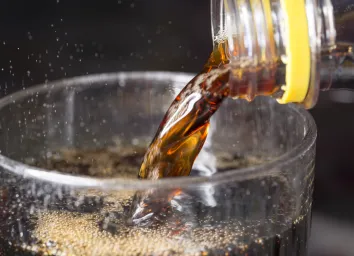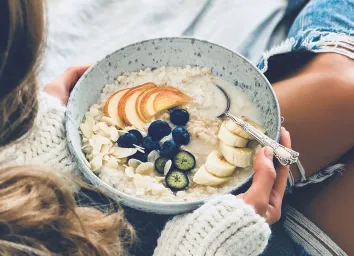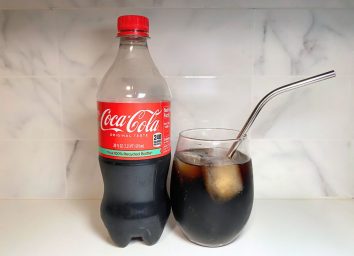I Was Addicted to Soda—Here's What Helped Me Quit
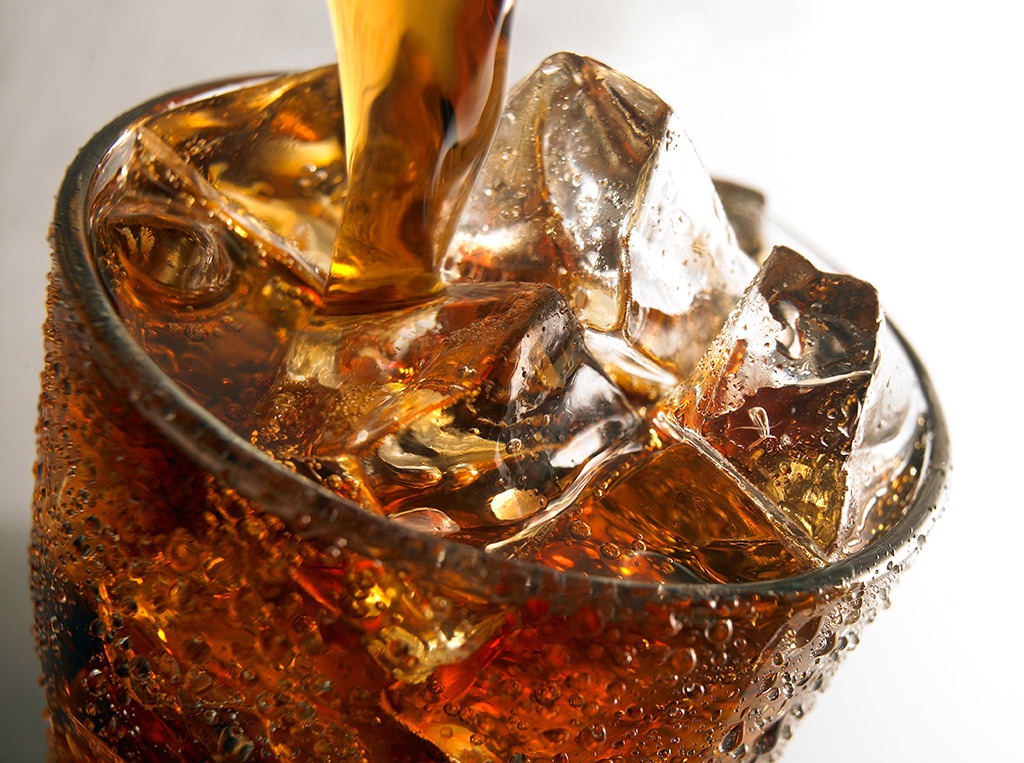
Last year, I wrote a popular story for Men's Health about why soda is bad for you, and how I gave it up after decades of feeling addicted. Upon publication, I expected to hear from Coke or Pepsi, outraged that the latest research showed soda—even diet soda—can make you fatter, older-looking, and lead to disease. Instead, I heard from Josh. And Karen. And Jefferey. People around the world wrote me to ask: How did you give it up? And how can I give it up, too?
The response was overwhelming—and an inspiration. If I could do it, so could they, and so can you.
And so you should—soda is sugar water, plain and simple. One can of Coke has more added sugars than the American Heart Association's recommended daily limit (39 grams a can, versus the recommended 36 grams for men and 25 grams for women). Do the math, then tell me you still wanna "do the Dew?"
What's more shocking is that there is increasing research connecting diet soda to obesity. Turns out, your body may not be able to tell the difference between pretend and real sugars. The artificial sweeteners could lead to actual weight gain. Talk about "fake" news.
With even our bodies confused about the effects of soda, I had to add clarity. My previous piece explained why soda is bad for you. This one—via Eat This, Not That!, the #1 name in nutrition—reveals how to stop drinking soda and kick the can for good. And for more on the horrors of soda, don't miss these 70 Most Popular Sodas—Ranked by How Toxic They Are.
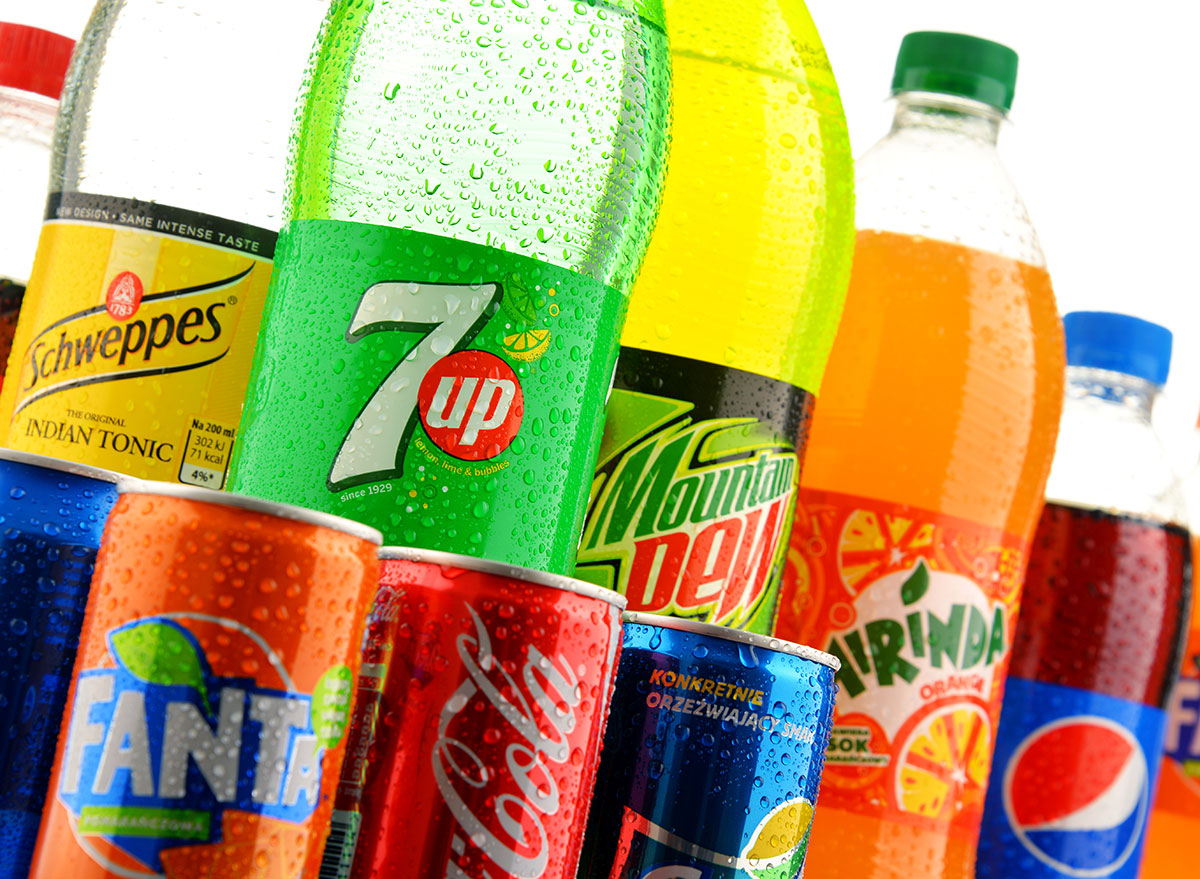
Step 1: Admit you drink too much.
Medically-speaking, soda isn't addictive; this isn't an episode of Breaking Tab. However, soda is a stimulant with a refreshing fizz, leading you to crave more—and admitting you crave too much is the first step. "For me, I knew I was out of control," Jefferey Biederman, 47, of Huntington, West Virginia, wrote me, after seeing my article. "I told myself I was having two a day, but with refills, it was closer to four." One can a day is better than four; none is better than one. Yet: "All my wife's concerns, all the articles I read about the side effects of sugary drinks, all the family history with heart disease (my dad died of a heart attack at 61) didn't make me stop." It took my article to wake Jefferey up. Maybe the one you're reading now will do the same for you.
Step 2: Get familiar with the basics.
To fully grasp why soda's bad, you don't have to be Dr. Pepper, Ph.D. Just embrace your common sense. You wouldn't eat a 3 Musketeers bar with dinner and expect to be healthy, but one Coke has the same amount of sugar. Nor would you pour chemicals on top of your tuna noodle casserole. However, some diet sodas are artificially sweetened with a chemical that's 600 times sweeter than sugar, as well as citric acid and caramel coloring, an additive made by treating sugar with ammonia. These stats were a gamechanger for Biederman. "The image of how much sugar is in one Coke really hit me hard," he says.
SHOP NOW: Discover 100+ no-added-sugar recipes in the Zero Sugar Cookbook!
Step 3: Witness the proof.
Because it's just water with additives, soda costs pennies for the manufacturer to make, yet they charge you 75 cents or more for a can. They are getting rich. Your health is getting poorer. The proof is out there, and it's not hidden. One Daily Mail headline screamed: "Two sodas a day DOUBLE the risk of heart disease." Is that true? "That is accurate," the study's co-author, Jean Welsh, Ph.D., assistant professor of pediatrics at Emory University, told me. And low-calorie sweeteners can promote fat accumulation in humans? Really? "Yes," says Sabyasachi Sen, MD, associate professor of medicine at the George Washington University School of Medicine and Health Sciences, who conducted the study. "Although it's touted as low-calorie and good for metabolism, that doesn't pan out."
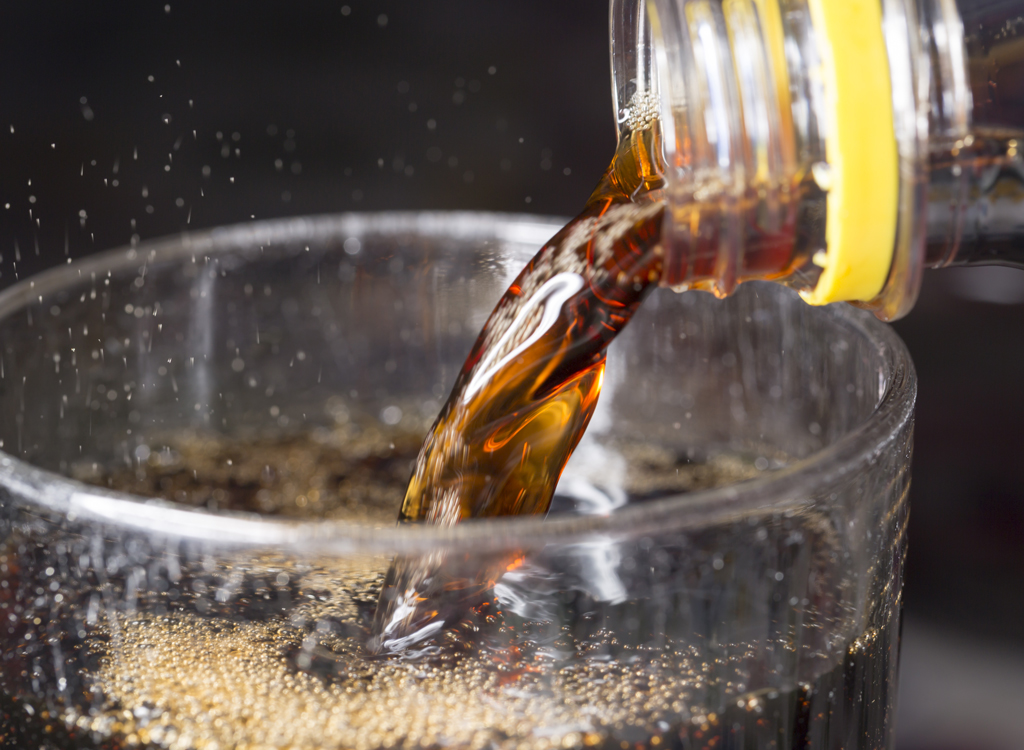
Step 4: Quit cold turkey.
So how do you quit soda? You just quit soda. For me, I stopped cold turkey. So did Biederman—although not at first. "I started with small goals and told myself it wasn't goodbye forever to Coke—just a break to reset," he says. "But deep down, I knew that wouldn't work. It's a slippery slope for me. So I drank nothing but water with lemon for the first 3-4 months. While boring, I got used to it." Six months later, he hasn't had a sip of sugary soda and: "I'm down 10 pounds and I can see a difference."
Kristina Ingeborg Rother, M.D., of the National Institutes of Health and an expert on artificial sweeteners, is a bit more forgiving—at least when it comes to diet soda. "We're seeking reward. We want to feel good. I say, don't be on a constant guilt trip," she says. "If you want to enjoy something, enjoy it consciously and be done. That said, if you wanna reward yourself, go get a cup of coffee and put one teaspoon of sugar inside. That's only 16 calories and all-natural."
Step 5: Enjoy a substitute.
Replace your bad habit with a good habit. I love Spindrift, carbonated and flavored with a splash of juice; Hint Kick, a caffeinated water with a touch of lemon and cayenne, or apple and pear, and anything from this awesome list of 20 New Drinks That Make It Easy to Quit Soda—which includes Bubly, a delicious new beverage from, yes, Pepsi. Although none have the tangy sharpness of my former beloved—Orange Crush—Orange Crush dyed my toes orange after bathing in it for the Men's Health photoshoot. It took three days to wash off.
Step 6: Revel in the new you.
Besides feeling clearer-headed and younger looking, I found one of the most surprising effects of giving up soda was: I didn't want soda. I'm not alone. Dariush Mozaffarian, M.D., dean of the Friedman School of Nutrition Science & Policy at Tufts University, also stopped drinking cola after writing the leading research on the topic. "I can't stand the taste of soda now," he says. Biederman wasn't so lucky. He admits he drinks a Coke Zero every day, but is proud to be off the sugary stuff, and should be, having lost those 10 pounds. In the words of one addict, even your worst day sober is better than your best day messed up!
